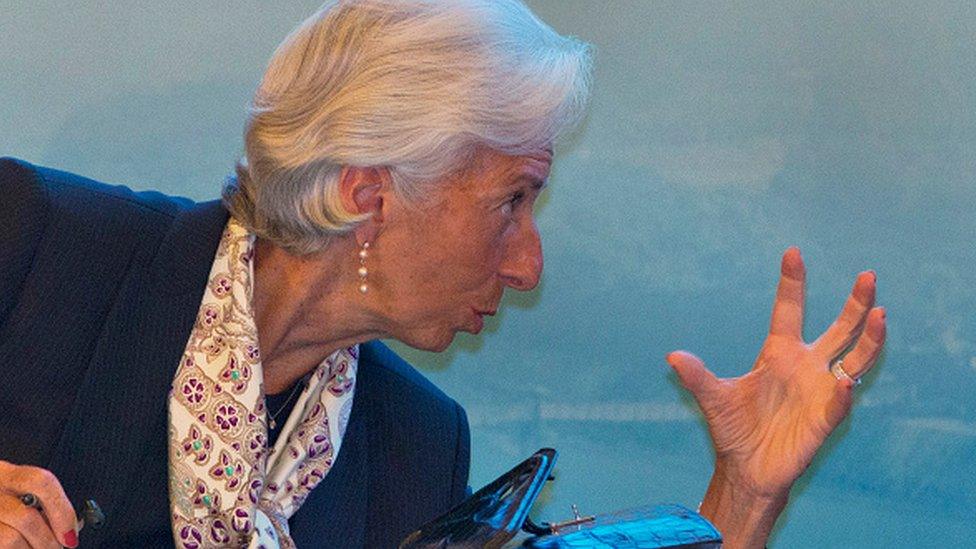IMF 'overly optimistic' about success of EU bailouts
- Published

The International Monetary Fund was "overly optimistic" about economic growth in Eurozone countries that received bailouts.
That is one of the criticisms in a report from the IMF's Independent Evaluation Office (IEO).
It says the handling of the crisis raises issues of transparency and accountability.
The IEO acknowledged, however, that the crisis posed "extraordinary challenges" to policy makers.
The report, which looked at the bailouts for Greece, Portugal and Ireland, examines the IMF's role in a crisis it was quickly drawn into.
The first bailout was agreed for Greece in 2010. Although it was funded mainly by the rest of the Eurozone there was a contribution from the IMF as well.
Financial packages for Ireland and Portugal followed.
The IEO report focuses on these three programmes. Later the IMF also got involved in a second package for Greece and one for Cyprus. In the case of Spain and a third bailout for Greece the IMF has contributed advice but not finance - or at least not yet for the third Greek package.
Unrealistic projections
The programmes were controversial. Critics said the austerity - intended to get government borrowing needs down - was excessive and did immense economic and social damage.
The IEO report says that in the case of Greece and Portugal, the IMF's economic growth projections were too optimistic. A more realistic assessment would have allowed countries to prepare better and might have persuaded the Eurozone countries to provide more generous financial aid.
There is also criticism of the process by which Greece came to get what's called "exceptional access" finance - assistance above the limits that normally apply to member countries seeking help.
Such access was limited to cases where the country's debt could be regarded as sustainable "with a high probability". Greece did not pass that test, so financial assistance would have required the private creditors to take losses on what they were owed first.
But there was great reluctance in the Eurozone to allow that, so a new exemption was introduced to the IMF approach policy for cases where there was a high risk of international financial contagion.

IMF managing director Christine Lagarde said its role in the eurozone crisis was a 'qualified success'
It was a change of policy and the IEO report says "the modification process departed from the IMF's usual deliberative process whereby decisions of such import receive careful review".
This "systemic exemption" as it's known, has subsequently been removed, external.
The report says the IMF's handling of the crisis helped create the impression that it treated Europe differently.
The IMF's managing director Christine Lagarde responding to the report described the agency's role in the Eurozone crisis as a "qualified success".
She says it is too easy to forget what the world looked like in 2010. There were fears of another event like Lehman, the American investment bank whose failure in 2008 led to the most severe phase of the international financial crisis. She says in the Eurozone case "major contagion" was avoided.
- Published10 July 2015